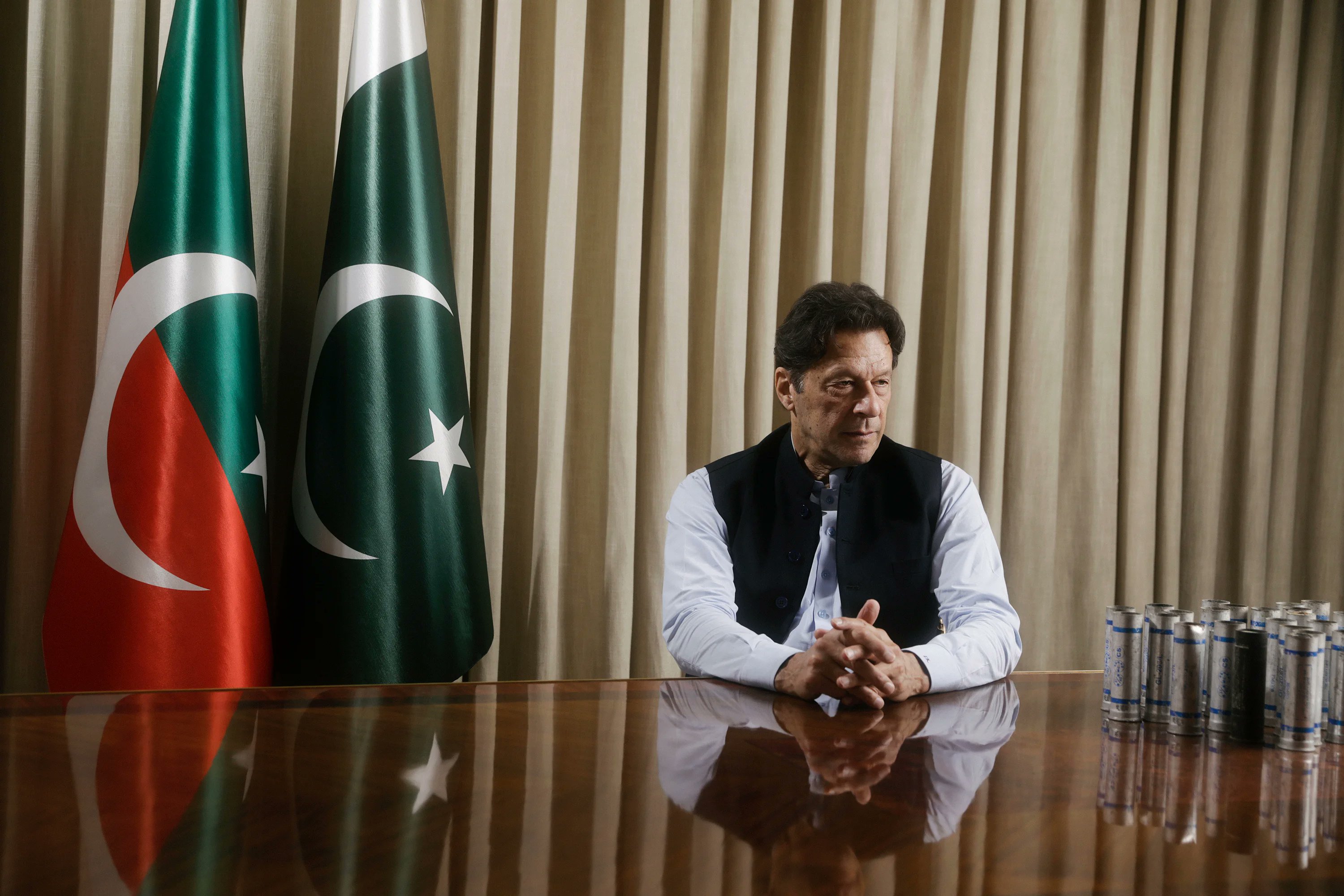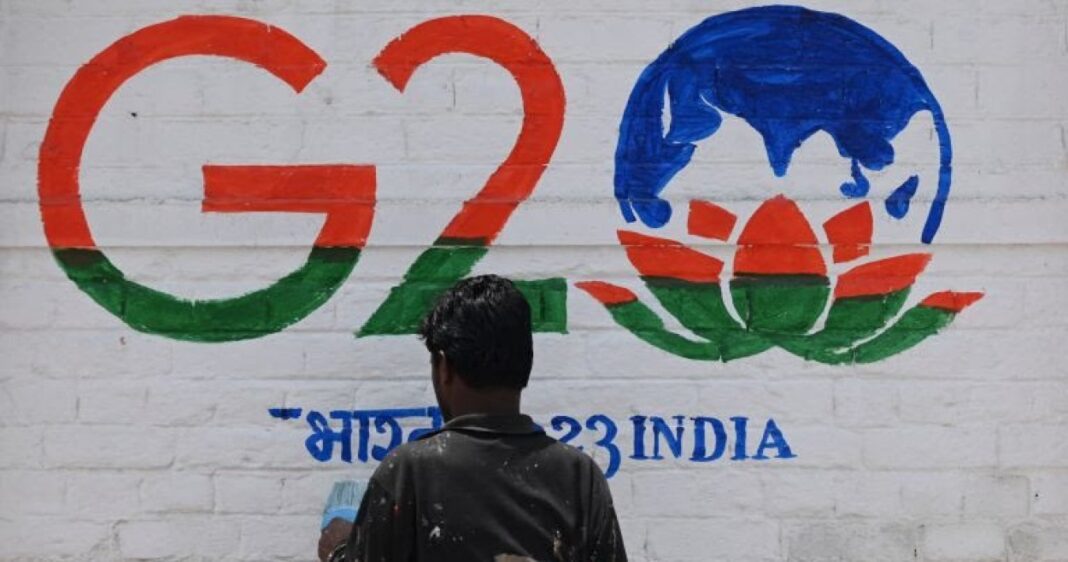The last three weeks witnessed a sadist melodrama enacted on Pakistan’s political stage. For over two decades, a country brandishing its nuclear might was seen heading fast toward collapse as if it were a house of cards.
The nation was already warped in economic and financial crisis when a political commotion overtook it and threatened to paralyze its institutions.
The no-confidence vote made Imran Khan resign from office, but he refused to accept the verdict of the National Assembly. Even a pseudo-democratic dispensation did not work in Pakistan. Massively supported by his party workers, he retaliated by his crowds taking to the streets, calling for strikes, and disrupting public order.
A violent scene of mobocracy began to unfold. He accused the Pakistan army of interfering in the civilian administration and called it a handmaid of the Pentagon.
Ignoring their constitutional and moral duty, the stakeholders began trading accusations and counter-accusations to run down a political rival. Khyber Pakhtunkhwa and Punjab provinces became the epicenter of the public rebuke of the ruling coalition for allegations and counter-allegations.
Criticism and counter-criticism became the order of the day, and democratic practices and principles began eroding quickly. Even the parliamentary language was converted into abuse. Aggrieved parties approached the courts, including the Apex Court, which could not escape slur.
Everybody seemed to be the enemy of everybody. The government became an enemy of the opposition parties; political parties became an enemy of the army; the army became an enemy of the judiciary. The judiciary became an enemy of the executive and the state, and the state became an enemy not only of the people but of itself.
As haranguing went on, the country’s financial situation was noose-diving at a rapid speed. The grave shortage of edibles, especially flour, meat, sugar, and the scarcity of energy resources brought all economic activities to a grinding halt. The country could not repay the loan installments, and the IMF went on dillydallying for many months and finally hung its boots.

None of the Islamic countries, including the OIC fraternity, was willing to lend a helping hand. Even the “brother” about whom Pakistan boasted of “cast iron bonds” was not ready to pull Pakistan’s chestnuts out of the fire. The Saudis conditioned assistance on the generosity of the IMF, which was not forthcoming despite Pakistan’s willingness to mortgage its vital national assets.
Pakistan Talks War
Amidst these chaotic conditions, diehards in Pakistan polity tried to play their patent anti-India and anti-Hindu rhetoric and rake up the moth-eaten Kashmir issue at various national and international fora. It would want to divert the people’s attention from ongoing disasters within the polity. That did not happen because it is almost impossible to hide the truth in the digital era.
The Hindustan Times of December 3, 2022, reported the statement of Pakistan’s new army chief Gen Asim Munir during his visit to a frontier post, “We have noticed highly irresponsible statements from Indian leadership on G-B & AJK recently. Let me make it categorically clear: Pakistan’s armed forces are ever ready to defend every inch of our motherland and take the fight back to the enemy if war is ever imposed on us.
On April 25, 2023, Pakistan’s new ISPR, Maj. General Ahmad Sharif Chowdhury repeated in his maiden press conference the warning words of his Army chief.
G-20
Pakistan is not among the G-20, but like its “iron friend,” it is at tenterhooks seeing India gaining prominence in the prestigious global organization of G-20. It cannot digest it. In June last, when the decision was taken to make India the next chairman after Indonesia, Islamabad lost its cool and dashed letters to the G-20 member countries asking them not to pass the baton to India.
It cited some select statements by a couple of leaders supporting its argument. Pakistan was entirely out of sorts when it came to know that India proposed to hold the Tourism Promotion Group’s meeting fixed for 22-24 May in Srinagar.
Pakistan and China also found it a bitter pill to swallow. The two, in tandem, decided to leave no stone unturned to disrupt India’s Srinagar program. Pakistan feared the negative fallout of a successful Srinagar meeting on the part of J&K under its illegal occupation, where massive anti-Pakistan demonstrations were only recently held in Muzaffarabad and Gilgit-Baltistan.
China, too, had the problem that the world would come to know of its land-grabbing lust, as was reflected by its illegal occupation of the territories in Shaksgam and Aksai Chin, which belong to India. New Delhi has lodged a strong protest against the building of the Karakorum Highway through a portion of the territory belonging to it.
Directing its vengeance against India, China prevailed upon Turkey, Egypt, and Saudi Arabia not to participate in the Srinagar meeting, a move in which China has a vested interest. These abstaining countries are under China’s financial and trade obligation, a mechanism that deprives the beneficiary of the freedom of chartering an independent foreign policy.
Feeling humiliated by the no response from the G-20, Islamabad decided to satisfy its fiendish sentiment by trying to disrupt the meeting of the Tourism Group on May 22-24 in Srinagar. The Inter-Services Intelligence (ISI) attempted to activate the remnants of banned terrorist organizations like LeT and JeM, which had gone underground in parts of the Valley.
Besides activating them, the ISI encouraged a few groups of terrorists based close to the LoC to infiltrate into the Valley and unleash terror wherever they could. However, alert security forces frustrated their attempts, and the infiltrators were repulsed with losses. A couple of terrorists were killed when they tried to create minor disruptions.
ISI pressed into service the drones loaned by Turkey, which made many forays to drop arms, ammunition, and currency, particularly in the Jammu region. Many of these attempts were foiled by the alert security forces. The ambush of a lone military vehicle moving along the Jammu – Poonch road by the Pakistan-led militant group resulted in the martyrdom of five soldiers of the Indian army. Army has undertaken the flushing out of Pakistani terrorists from the thick jungles of the Poonch and Rajouri sectors.
Only days before the beginning of the meeting, security forces foiled an extensive plan of ISI aimed at repeating the type of Mumbai attack. India Today on May 21 reported this: “Consequent upon these incidents, the state had no alternative but to deploy a strong posse of forces not to allow Pakistan succeed with its conspiracy.”
The Pakistani elitist and creamy group — an amalgam of political leadership, senior bureaucrats, top landlords, and Army Generals — finds its existence and continuation of a luxurious lifestyle contingent upon the Kashmir issue. This group opposes all proposals of solving the dispute through bilateral dialogue. Its interests lie in keeping the Kashmir pot boiling.
Pakistan was upset when India took over as the new Chairman of G-20 for one year. Pakistan is not a member of the G-20 as it is not a major economy, but it is unhappy that India will be hosting the G-20 this year. When New Delhi announced that the meeting of the tourism promotion group of the G-20 would be held in Srinagar (J&K), it caused unrest. Islamabad embarked on a big plan to oppose India’s proposal of having the G-20 Tourism Development group’s meeting in Srinagar, arguing Kashmir was a disputed region.
Islamabad sent letters to the ambassadors of G-20 countries and also wrote to their foreign offices asking them not to accept the invitation to the Srinagar meet. However, Islamabad’s exhortation cut no ice with the invitees, and the meeting went as scheduled.
Failing to receive any favorable response from the G-20 member countries, Pakistan’s ISI planned to activate the banned terrorist organizations on Pakistan’s soil to disrupt the meeting by undertaking multiple cross-border attacks on military and police camps. India Today on May 21 splashed the following report: “26/11-type attack plot exposed, Kashmir plan of G20 delegates tweaked.”
Security had been scaled up significantly in Kashmir as it prepared to host a G-20 event from May 22. Amidst this, a detained terrorist aide had revealed a daring plot to carry out a terror attack on a hotel where G-20 delegates were scheduled to stay. The changes were made following revelations by a detained Over Ground Worker (OGW).
Security forces in Jammu and Kashmir made last-minute changes to the G-20 Tourism Working Group (TWG) conference itinerary owing to security reasons as they suspected terrorist organizations had conspired to repeat the 26/11-type attack during the G-20 in Gulmarg at the behest of Pakistani intelligence agency ISI, sources said.
The changes were made following revelations by a detained over-ground worker (OGW) who worked in a posh hotel. Security around the G-20 venue has also been beefed up. The Kashmir Police meanwhile issued a public advisory against suspicious international mobile numbers allegedly being used to spread rumors about the G-20 meeting in the Valley.
OGW helps terrorists with logistical support, cash, shelter, and other infrastructure with which armed groups and insurgency movements such as Hizb’ul Mujahedeen and Jaish-e-Muhammad in Jammu and Kashmir can operate.
Security forces arrested one Farooq Ahmad Wani in the last week of April as part of a crackdown ahead of G-20. A resident of Haigam, Sopore in Baramulla, Wani provides services as a driver at a famous five-star hotel in Gulmarg. According to sources, he was associated with terror organizations as an OGW and in direct contact with ISI officials across the border.
During questioning, Wani revealed that the terrorists aimed to enter the hotel and target the people present there, including foreign dignitaries, in the same way as terrorists opened fire and took hostages at the Taj Hotel during the Mumbai attack.
In a press conference in which many local, national, and foreign correspondents were present, a few questions of much interest were put to the panelists. One question asked by at least two correspondents was that the conference was held under heavy security arrangements. In their opinion, there was no peace in the Valley.
We want to respond to questions like this by telling the questioner whether they had asked Pakistan-based terrorist organizations why they tried to disrupt the meeting, which was highly beneficial to the Kashmiris. It was quite natural that the government should make foolproof security arrangements to ensure that no harm was done to the visitors and the guests.
To yet another question, the conference was meant to win world support for India’s standpoint on the Kashmir dispute. The Indian External Minister had, much earlier, answered that question, and to repeat it, he said that yes, there was the Kashmir question, and the question was when Pakistan would vacate the part of Kashmir illegally occupied by it.
Yes, India utilized the opportunity of telling the world how false and baseless propaganda was carried out by our Western neighbors all over the world that India was abusing the human rights of the Kashmiri people.
The Question
Finally, we have one question on behalf of the Kashmiri people in Pakistan. The question is that since Pakistan speaks of its religious duty to come to the support of Kashmiris, is holding the Tourist Development Group meeting in Srinagar beneficial or harmful to the interests of the people of Kashmir?
Kashmir is one of the most famous tourist destinations in the world. Does disrupting the G-20 meeting in Srinagar go in favor of the economy of Kashmir or to its detriment? The same question can be put to the abstaining members as well. The net outcome is that the people of Kashmir understand their benefactors and detractors very well.
eurasiantimes

